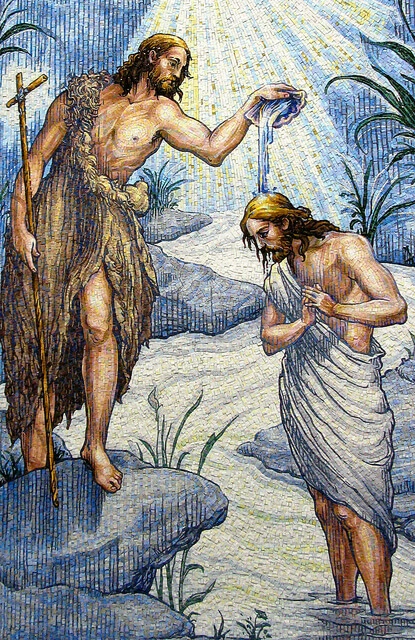
John the Baptist represents the natural, literal sense of the Bible. He and Jesus were cousins. He paved the way for Jesus, just as the literal sense of the Bible paves the way for the spiritual sense. John is described as a rough man clothed with camel's hair. The literal sense of the Bible can be rough and unpleasant as well. The fact that John lived in the wilderness speaks to the state of the Old Testament at the time. His message of repentance is the first step towards spiritual rebirth. (Arcana Coelestia 9372, 10528)
Yet even in its externals, the Bible stands above human-generated ideas: Jesus said John was "greater than a prophet," and prophets represent doctrine. "Those born of women" represent true ideas; John was the greatest of all. And the simple power of his message – a message of repentance – helped people examine and begin to fight their evils, preparing them for the love and goodness that Jesus would preach.






